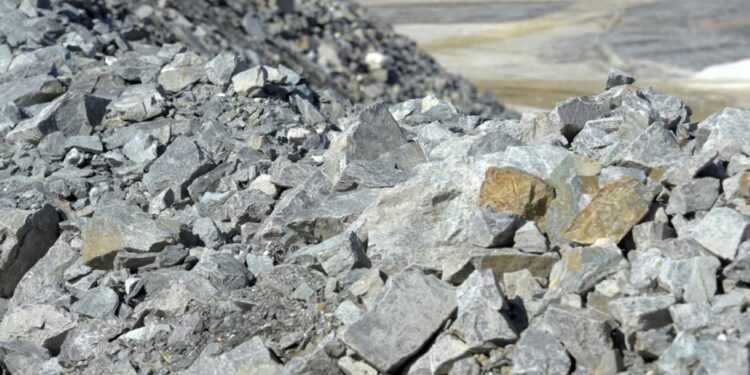Export Bans Bear Fruit as Africa Ramps Up Lithium Refining Capacity
Lithium is primarily used in the production of rechargeable batteries for products such as electric vehicles (EV) and mobile phones.
- Advertisement -
After banning exports of raw lithium in the face of growing demand from countries like China, a number of African countries rich in the battery metal are experiencing a growth of in-country mineral processing activities.
Lithium is primarily used in the production of rechargeable batteries for products such as electric vehicles (EV) and mobile phones.
- Advertisement -
For close to a year, there has been a surge in the development of lithium processing plants – especially in Zimbabwe – as foreign investors seek ways to access the material in the face of the export bans.
- Advertisement -
“With investment flowing across the country’s mining value chain, Zimbabwe is estimated to meet upwards of 20% of global demand if its full potential is unlocked,” said Energy, Capital and Power, the organisers of the annual Critical Minerals Africa conference.
The Second edition of the event is scheduled for for 6th and 7th November 2024 as it seek to advance its goal of establishing world class minerals value chains in Africa.
“This is the African critical minerals deal making space, standing at the intersection of energy and mining, linking global consumers and producers, and bringing global capital to African projects,” said the event organisers on their website.
The event happening in Cape Town has a dedicated ’Minerals Showcase: Lithium session’ that will explore the continent’s future role in the energy transition as a major producer of the critical mineral.
Among the latest developments is the signing of a US$310-million deal between Zimbabwe’s state-owned mining company Kivumba Mining House and a consortium of British and Chinese investors to construct a 3 million ton per year lithium processing plant at the Sandawana mine in Mberengwa.
The facility, being developed under a build, operate and transfer agreement, is expected to be operational within 18 months and will initially produce 600,000 tons of lithium concentrate annually.
In April 2024, another Chinese mining company, Rwizi Rukuru commissioned the country’s third lithium processing plant, a 300-ton-per-day lithium concentrator located in Mutoko, in the country’s Mashonaland East province.
UK-based mining and exploration company, Premier Africa Minerals has been playing a significant role in boosting investment flows to Africa’s critical mineral sector including through local capital fundraising.
In April 2024, the company announced plans to inject US$2.5 million to fast-track the commissioning of lithium mines in the country, including one at the Zulu project, 80km from Bulawayo. The site is regarded as one of the largest undeveloped lithium reserves in the country.
“The progress made this year on the most complex part of this plant is actually very good and we should not lose sight of the fact that this initial plant at Zulu is likely only the beginning of a long and exciting development for this project,” said Premier Africa Minerals Chief Executive Officer, George Roach in the company’s August updates.
Zimbabwe is home to the world’s largest known deposits of lithium and is estimated to have the highest number of lithium projects under exploration in Africa.
- Advertisement -
Zimbabwe’s government banned raw lithium exports in December 2022, on the back of increased trade by artisanal miners, as it seeks to get more value from the mineral.
Neighbouring Mozambique is another exciting lithium prospect, according to exploration companies. In May, Mozambican mining company Magnifica and Indian miner Deccan formed a joint venture – Deccan Gold Mozambique – to establish a 100-ton-per-day lithium processing facility, leveraging a US$10 million capital injection from Deccan over the next three years
Under the agreement, lithium produced from the Mozambican concessions will be exported to India to meet growing demand for critical minerals crucial for the energy transition in the Asian country.
In Nigeria, three Chinese companies are taking the lead in establishing lithium processing facilities.
China’s Avatar New Energy Materials has officially launched Nigeria’s largest lithium processing plant in Nasarawa State, located in the center of the country. The US$100 million facility has a capacity of 4,000 tonnes per day.
Canmax Technology, a prominent Chinese company responsible for approximately one-third of global battery material production, has announced a US$200 million investment for another lithium factory in Nasarawa.
Another Chinese company, Ming Xin Mineral Separation is also constructing a lithium processing plant to produce EV batteries in Kaduna state.
The Nigerian government has stipulated that no company will be allowed to mine and export raw lithium unless they establish processing plants within Nigeria.
Tanzania is also expected to see a rise on in-country processing after announcing in 2023 it will ban export of unrefined lithium by mid 2024.
The Tanzanian government has outlined an export license process, stating that mining companies are required to establish in-country refining facilities alongside their respective operations.
So far US company, Titan Lithium Inc, is the top contender for Tanzania’s lithium reserves, with plans to consolidate its position in the country.
Market research firm, Benchmark Mineral Intelligence early in 2024 forecast Africa’s lithium production to triple year-on-year in 2024, increasing the continent’s share of global output from 4% to over 10%.
The firm attributed the rise to a surge in financing from China, which is expected to be the destination for 90% of Africa’s planned lithium supply through 2030.
Source:norvanreports.com
- Advertisement -


